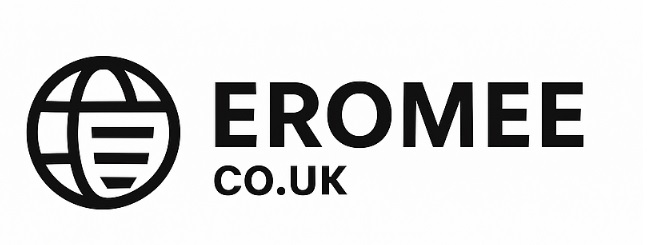The use of artificial intelligence (AI) in care management is changing how healthcare practitioners engage with patients. AI-powered care management solutions may save expenses, increase productivity, and adapt treatment plans. Taking full use of these improvements poses unique problems for healthcare firms.
Increasing Productivity through AI Integration
Automating administrative duties using AI technology can free up healthcare professionals to concentrate more on patient care. Artificial intelligence (AI) automates repetitive tasks, saving time and effort in scheduling, data processing, and documentation.
Notable Improvements in Productivity
● Automated Records: By classifying and transcribing patient exchanges, AI takes the place of manual record-keeping.
● Making appointments: Calendar tracking, user alerts, and real-time schedule modifications are all features of smart systems.
● AI examines: Analyzes patient data quickly, finding trends and highlighting anomalies that need more research.
Customizing Patient Care using AI
AI-powered care management platforms provide personalized treatment suggestions by analyzing enormous volumes of patient data. AI assists in the following ways by taking into account medical history, lifestyle, and socioeconomic factors of health:
● Risk stratification: Finding patients who are at a high risk of problems or readmission
● Tailored Interventions: Making recommendations for certain therapies or lifestyle modifications by each person’s needs.
● Tracking Progress: Observing patient outcomes and making required adjustments to treatment plans.
This customized approach enhances patient satisfaction and health outcomes by guaranteeing that patients receive care that is specific to their circumstances.
AI’s Practical Advantages for Care Management
There are several practical benefits of using AI in care management solutions:
● Resource Allocation: AI helps with effective personnel and resource deployment by forecasting patient intake.
● Workflow Optimization: Simplifying procedures cuts down on duplication and improves care team collaboration.
● Cost reduction: Using precise diagnosis and treatment suggestions to cut down on pointless tests and procedures.
Things to Consider When Integrating AI
Even if there are many advantages, there are drawbacks to using AI in care management:
Security and Privacy of Data
Concerns around security and privacy arise because using AI necessitates access to large amounts of patient data. Healthcare professionals need to make sure:
● Regulatory compliance: Adhering to laws such as HIPAA to protect patient information
● Robust Cybersecurity Measures: Implement firewalls, encryption, and regular audits to prevent data breaches.
● Patient consent: Verifying that patients understand and consent to the use of their data in artificial intelligence systems.
Algorithmic Fairness and Bias
AI programs are only as objective as the data they use to train. AI may reinforce biases in past data, which might result in:
● Inequitable Care: Some groups could get treatment plans or suggestions that are not the best.
● Misdiagnosis: Inaccurate evaluations resulting from biases might impact patient outcomes.
● Loss of Trust: If patients and healthcare professionals believe that AI systems are unjust, they may stop trusting them.
Adoption and Integration Difficulties
It takes careful planning to integrate AI into current systems. Among the difficulties are:
● Technical compatibility: Ensuring that AI technologies work in unison with existing electronic health records (EHRs) and systems.
● Staff Training: Teaching medical personnel how to use AI tools efficiently.
● Change management: Addressing reluctance to change and encouraging an innovative culture.
Techniques for Integrating AI Effectively
Healthcare companies should think about the following tactics to maximize AI’s advantages while lowering its risks:
All-Inclusive Planning
● Assessment of Needs: Determine certain domains in which AI might be beneficial.
● Engage Stakeholders: Include patients, IT specialists, and physicians in the planning phase.
● Pilot Programs: Before implementing AI technologies widely, test them in controlled environments.
Constant Observation and Assessment
● Performance Metrics: Create KPIs to evaluate AI products’ efficacy.
● Feedback Loops: Get user input to pinpoint areas that need work.
● Frequent Updates: Provide the most recent data and methods to AI systems.
Legal and Ethical Aspects to Consider
● Openness: Make sure AI decision-making procedures can be explained.
● Accountability: Establish who is in charge of decisions made by AI.
● Equity: Conduct routine bias audits of AI systems and implement remedial measures.
AI’s Potential in Care Management
AI will play a bigger part in care management as technology develops. Future advancements might consist of:
● Predictive analytics: Forecasting possible epidemics and health trends.
● Virtual health assistants: Offering patients information and assistance around the clock.
● Advanced Robotics: Helping with recovery after surgery.
However, resolving present issues and fostering trust among all parties involved are essential to the success of these developments.
Bottom Line
There is revolutionary potential for healthcare delivery with the use of AI into care management platforms. AI has the potential to greatly enhance results by optimizing administrative duties, customizing patient care, and increasing operational effectiveness. Healthcare businesses must proactively address issues with algorithmic bias, data protection, and system integration in order to reap these advantages. AI has the potential to be a potent ally in improving care management via careful design, ongoing assessment, and addressing ethical concerns.Persivia provides state-of-the-art Digital Health Platforms that are intended to improve productivity and patient outcomes for healthcare companies attempting to negotiate the challenges of integrating AI in care management. In order to satisfy the changing demands of contemporary healthcare systems, Persivia has developed platforms that prioritize innovation and compliance.

